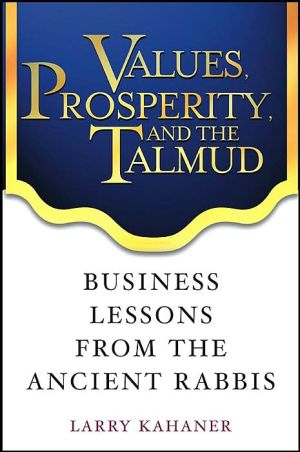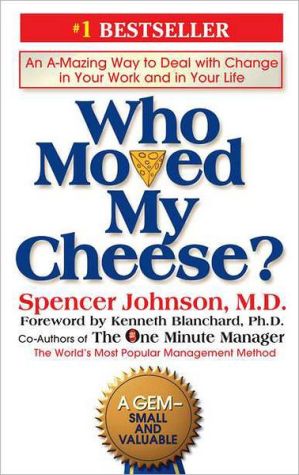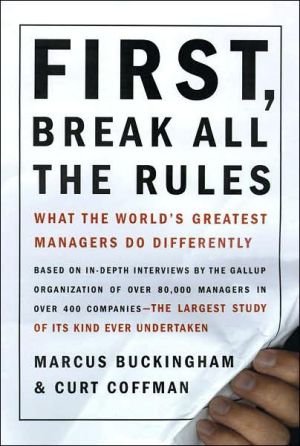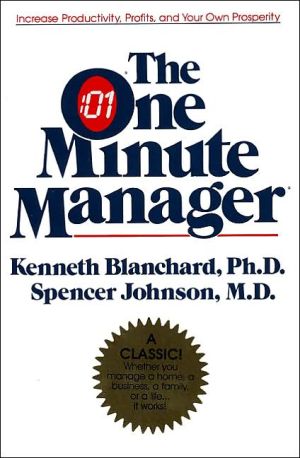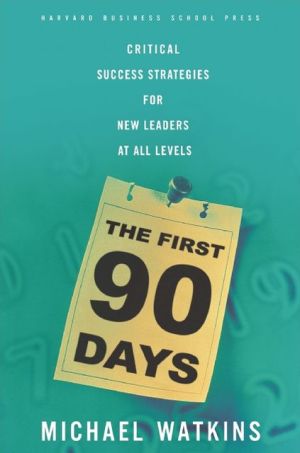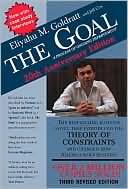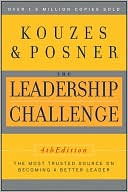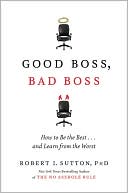Values, Prosperity and the Talmud: Business Lessons from the Ancient Rabbis
Praise for VALUES, PROSPERITY, AND THE TALMUD\ "The ancient wisdom of the Talmud is as relevant today as it was 1,500 years ago, and its advice about business both tactical and ethical is as applicable to our high-tech world as it was to their world of trading mules and buying olives."\ ?'Alan M. Dershowitz Felix Frankfurter Professor of Law Harvard Law School\ "For too long we've separated business from religion and in so doing we've thrown the baby out with the bath water. Can religion be...
Search in google:
This insightful book offers business advice that has endured for thousands of years. While business fads come and go, the ancient lessons of the Talmud are timeless, profound, ethical, and practical–and they’re for everyone. Values, Prosperity, and the Talmud is a concise guide to this proven philosophy of business. Beyond basic money-related matters, it includes the Talmud’s advice on complex issues of employer/employee relationships, partnerships, competition, and much more. Here, you will learn how to run a successful business, negotiate with style, earn the loyalty of your employees, sell products successfully, advertise effectively, and make higher profits, all within an ethical and moral framework. Buy it today!
\ Values, Prosperity, and the Talmud\ \ \ \ Business Lessons from the Ancient Rabbis\ \ \ \ By Larry Kahaner\ \ \ John Wiley & Sons\ \ \ \ Copyright © 2003\ \ Larry Kahaner\ All right reserved.\ \ \ ISBN: 0-471-44441-3\ \ \ \ Chapter One\ \ \ The Spirituality of Money\ \ Who is wealthy? One who derives inner peace from his fortune.\ -RABBI MEIR\ Some religions reject the love of money, contending that it is the root\ of all evil. Some go so far as to say that poverty is a route to holiness and\ scarcity is a road to sanctity. The Talmudic rabbis' attitude, in contrast,\ is that money and wealth can be positive forces.\ Two conditions must be met for money to be a positive force, however.\ First, we must use our wealth in a responsible way, and, second, we\ must understand that wealth is not an indication of our inner worth.\ We are merely stewards of the wealth bestowed upon us while we are\ alive.\ \ Praying for Prosperity\ In ancient times, at the conclusion of Yom Kippur, the holiest day of\ the year, the high priest blessed the congregation. His prayer was for\ enough rain so the fields would yield a robust crop. He prayed that the\ congregation would reap a large harvest, beyond what they would need\ to feed themselves, so they could sell the surplus crops in themarketplace\ and prosper financially.\ The later Talmudic rabbis were somewhat troubled by the high\ priest's approach. Why would he pray for financial prosperity instead\ of, say, health, happiness, wisdom, or some other nonmaterialistic, spiritual\ desire?\ The high priest certainly wanted people to think about God and\ their spirituality, but he knew that unless people had money, they could\ not even begin to think about their spiritual health. If people were not\ able to attain some measure of material comfort, their spiritual needs\ would never be addressed.\ Rabbi Elazar ben Azaryah said, "Where there is no money, there is\ no learning." This is the literal translation, but the rabbis expanded it\ to mean that unless people's stomachs are full, they cannot study, grow\ spiritually, and do good deeds. The ultimate purpose of money, which\ we'll see time and again in Talmudic thought, is to increase community\ prosperity, provide employment, and allow people to grow and reach\ their full potential.\ \ There Is No Virtue in Poverty\ The Talmudic rabbis recognized no virtue in poverty-intentional or\ otherwise. They found nothing noble in people's becoming impoverished\ by giving away their money, no matter how worthy the cause. By\ Halakic law (Halakah are Talmudic passages concerning law and legal\ subjects), Jews are forbidden to give away their fortunes and become\ poor. Contrast this with Matthew 19:21 in the King James Version of\ the Christian Bible, which tells people, "Sell what you have and give to\ the poor." This is not to suggest that the Gospel of Matthew is wrong\ or misguided, but it shows that Judaism takes a different approach than\ many other religions. Some Buddhists, for example, believe that a true\ connection to the spiritual realm comes as a result of a paucity of possessions.\ Interestingly, the ancient rabbis often suggested that rich people\ obviously were more righteous than others because they had been\ blessed with wealth. Naturally, this observation didn't always hold true\ because a wealthy person's righteousness depended on how he spent\ his money-on whether he did good deeds with it. Nonetheless, in\ ancient times rich people were often revered in Jewish communities\ not because of their wealth, per se, but because they were thought to be\ blessed, until shown to be otherwise.\ Judaism considers donating one-twentieth to one-tenth of your\ wealth virtuous, but giving more of your estate is considered excessive\ unless you are very wealthy (although it's acceptable to bequeath an\ entire estate prior to your death). Taking care of your own needs and\ those of your family takes priority.\ The story of Job is a classic Bible tale about a righteous, God-fearing,\ wealthy man, and it reveals the horrors of being poor. The story suggests\ that Job was wealthy because he was a good person and thus was\ rewarded by God. Satan challenges God, asking whether Job would still\ praise him if he were poor and had life-threatening diseases. God takes\ the challenge and turns Job's life upside down, giving him boils and sores\ and thrusting him into poverty. Job's wife and others tell him to renounce\ God, but Job refuses, despite his afflictions.\ In the end, Job becomes twice as wealthy as he had been, but during\ an interchange we hear Job discussing how important money is to\ him. God asks Job, "Which would you prefer, poverty or afflictions?"\ Job responds, "I would rather accept all the afflictions of the world, but\ not poverty." It's interesting to see that, faced with physical ills and\ even death, Job would prefer these choices over poverty because he\ understood that without some amount of money, his life and the lives\ of his family members would be miserable.\ The Talmudic rabbis had a great personal interest in discussing\ poverty because so many of them were relatively poor. Passages from\ the Talmud frequently reflect this, for example: "A poor man's life is no\ life," "Poverty deprives a man of his creator," and "A poor man is like\ one dead." Another passage states: "Nothing in the universe is worse\ than poverty. It is the most terrible of sufferings. A person oppressed by\ poverty is like someone who carries on his shoulders the weight of the\ world's sufferings. If all the pain and all the suffering of this world were\ placed on one side of the scale and poverty on the other, the balance\ would tilt toward poverty."\ The Talmudic rabbis examined not only how poverty caused people\ to lose sight of their creator and their spiritual side, but also how it\ can undermine self-esteem and self-confidence, both of which are\ necessary for personal and business success. Rabbi Yohannan and\ Rabbi Eleazer said that as soon as a man became dependent on others\ for his sustenance, his face would change as many colors as a kerum.\ The kerum, an African bird, changes hue depending on how the sun\ hits it. In analogous fashion, a poverty-stricken man is buffeted by\ events around him, eventually losing control of his life, his family, and\ his career.\ \ Is It Good to Be Wealthy?\ If poverty is to be avoided, is wealth to be sought? This issue was\ thornier for the Talmudic rabbis. Although being rich was considered\ better than being poor, being wealthy entails many challenges, including\ greater obligations and loftier responsibilities. "The more possessions,\ the more anxiety," Hillel noted.\ First, it's essential to understand how Judaism regards ownership.\ Judaism provides for a right to property and protection for that property,\ but it does not accept the idea of absolute and unlimited ownership.\ Wealth, consisting of both money and property, does not belong to\ the individual; it belongs to God. People are stewards, or trustees, of\ that wealth.\ Rabbi Akiva regarded wealth as a long-term debt to God, which is\ paid off by living a righteous life. He said, "Everything is given as a\ pledge, and a net is spread for all the living. The shop is open and the\ shopkeeper extends credit. The ledger is open and the hand writes. Whoever\ wishes to borrow may come and borrow. The collectors make their\ appointed rounds daily and take payment from man, whether he knows it\ or not. The judgment is the judgment of truth and everything is prepared\ for the banquet." In this passage, God is the shopkeeper who has loaned\ us money, our businesses, our lives-everything. In return, the debtor\ owes the Almighty a righteous life. Our days on earth are limited, and we\ are expected to settle our accounts before we die. The payment should\ not come at the last minute, either, but through a life of good deeds.\ In this vein, wealthy people are expected to act as trustees for their\ riches and use this wealth to alleviate suffering. This does not mean\ that wealth should be redistributed so that all people become financially\ equal. On the contrary, we must accept that there will always be\ both rich and poor in the world. For the rabbis, this inevitable fact of\ life makes charity imperative.\ There's an Chasidic story about a wealthy businessman who\ decided to retire. (Chasids, a sect of Jewish mystics established in\ Poland about 1750, are characterized by religious zeal and a spirit of\ prayer, joy, and charity.) He wanted to close his factory, which was operating\ profitably, and spend the rest of his life studying the Talmud. He\ told the local rabbi about his plans, and he expected the rabbi to applaud\ his choice to become a man of great Talmudic wisdom. Instead, the\ rabbi was dismayed at the man's decision and asked, "What will happen\ to all the workers you employ? How will they feed their families?" The\ rabbi explained to the factory owner that perhaps God gave him this\ wealth so that he would act as its trustee, and thus he had a moral obligation\ to use it properly for the benefit of those in his community. His\ job was to provide jobs.\ Judaism proposes that, although wealth is a good and positive condition,\ it cannot, in itself, bring happiness. The insatiable quest for\ wealth that is evident all around us can become self-defeating and\ destructive for those who become caught up in it.\ In The Challenge of Wealth, the contemporary rabbi Meir Tamari\ describes this challenge as the ability to understand that enough is\ enough. The concept of "enough is enough" runs throughout Talmudic\ thought and is crucial to the lesson that discusses overwork. People must\ resist their natural inclination to accumulate more wealth than they\ need because this increases the temptation to acquire money though\ dishonest activities. Tamari explains, "Greed is enhanced and empowered\ by man's perpetual fear of economic uncertainty. So we perpetually\ seek to protect ourselves against the risk involved in the market and\ in the human condition through legitimate means but also by immoral\ ones." He adds that if people have faith that God will provide them sustenance,\ then they will be released from the desire to seek more money\ and property than they really need: "... it is this faith that allows people\ to take the risks needed for entrepreneurial development, thus maintaining\ the legitimate search for wealth within moral parameters."\ Tamari's point is an important one because it forges the direct link\ between spirituality and money that many of us seek.\ Having faith in God's blessing of continual abundance frees people\ from the belief that they must accumulate too much wealth or that they\ must do so through immoral activity. If we truly believe that God offers\ us abundance, then there is no need to steal or cheat to attain what we\ want. There will be enough for us. On the other hand, if we believe that\ the "big pie" is shrinking, then we will feel impelled to get our slice\ quickly by whatever means necessary so we are not left out. Clearly,\ this latter road can lead to illegal behavior and ultimate ruin.\ We also must be certain that others do not suffer, either directly or\ indirectly, because of our wealth. In his book The Kabbalah of Money,\ Rabbi Nilton Bonder defines wealth in a unique way: "Let us define\ wealth as the highest form of organization possible to the environment\ in such a way that everything alive and everything essential to life exists\ without scarcity. In other words, the more abundance we create for a\ given human need, without generating the scarcity of another need, the\ better."\ This definition reveals a connection between spirituality and\ money that many of us have never considered because we often think\ of money as the antithesis of spirituality. We tend to regard money as\ being rooted in earthly matters, while spirituality exists on a higher\ plane. However, this positive, spiritual view of money is validated when\ the money is used to perform good deeds on earth and nobody is hurt\ as a consequence of the quest for great wealth. If these and other criteria\ are met, the seeking of wealth becomes a noble and divine pursuit.\ \ Seeking a Balance\ The ancient rabbis suggested that Jews are obligated to study the Torah\ and the Talmud because this is a time-consuming activity and is therefore\ time that will not be spent accumulating wealth. Thus, studying helps\ people to achieve an equilibrium between accumulating money and\ appreciating the other parts of life. Likewise, simply choosing to leave\ the office at 5 P.M. rather than working late may help people develop\ more balanced lives by allowing them more time with their families.\ Tamari notes that seeking this balance is difficult, and his views echo\ those of Rabbi Jonathan Eybeshitz, an eighteenth-century European\ Talmudist who considered money one of the greatest trials and temptations\ of life. This challenge has been particularly trying for Jews, suggested\ Eybeshitz, because the religion does not preach that money is evil\ or that worldly pleasures should be totally shunned. In fact, one passage\ from the Talmud states that Jews will be held accountable for the pleasures\ in life in which they did not partake, including the visceral pleasures\ that money can bring.\ Concerning the challenge of achieving balance, Eybeshitz wrote:\ "Our natural needs are important and pleasures are not to be renounced.\ Man requires material things to live, and Judaism is not calculated\ to bring pain but joy and happiness to man. Our religion does\ not require a self-inflicted discipline or self-sacrifice, fasting and flagellation.\ We are not expected to live as hermits nor a life of self-denial."\ Judaism advocates "not the total abstention from physical comforts but\ the judicious use of them."\ \ Delight in One's Lot\ Judaism teaches that the truly wealthy people (or companies) are those\ who appreciate what they have attained. A wealthy person is one who\ achieves a peaceful state of mind through his money. This implies that\ a wealthy person has neither a lot of money nor a little money. A billionaire\ would not be considered wealthy if he was not satisfied with\ what he had, yet a poor person would be considered wealthy if he was\ happy with his small lot.\ The Book of Proverbs says: "Lest I become sated and deny, saying\ 'who is God?' or lest I become impoverished and steal thus profaning\ the name of my God." In other words, if we have everything we want\ materially, we might believe that God has nothing to do with our\ wealth, that we did it all on our own. That might lead to denying the\ existence of God altogether. On the other hand, if we were so poor that\ we stole for sustenance, we would break God's commandments as well.\ This passage calls for balance in our financial lives.\ "Who is rich?" the Talmudic rabbis asked each other. One rabbi\ replied that it is the man who has a bathroom near his dining room. (In\ ancient times, having your own personal privy close to the house was a\ perk of the rich.) Another said that a rich person is one who has a hundred\ fields, a hundred vineyards, and a hundred slaves in each of them.\ \ Continues...\ \ \ \ \ \ \ Excerpted from Values, Prosperity, and the Talmud\ by Larry Kahaner\ Copyright © 2003 by Larry Kahaner.\ Excerpted by permission.\ All rights reserved. No part of this excerpt may be reproduced or reprinted without permission in writing from the publisher.\ Excerpts are provided by Dial-A-Book Inc. solely for the personal use of visitors to this web site.\ \
PrefaceAcknowledgmentsLesson 1The Spirituality of Money1Lesson 2Work as a Holy Act23Lesson 3Treating Workers Well Pays Dividends43Lesson 4Giving and Getting a Fair Day's Work73Lesson 5The Bonding of Corporate Profits and Ethics89Lesson 6Balancing the Environment and Profits123Lesson 7The Rules of Partnerships, Deals, and Debt143Lesson 8Competition Is for True Competitors Only169Lesson 9Education Is a Lifelong Process183Lesson 10Charity Means More Than Just Giving203The Ultimate Business Secret of the Rabbis: Reputation217A Note on Translation and Commentators233A Short History of the Talmud235Unlocking the Talmud's Structure241A Who's Who of Talmudic Rabbis243Bibliography251Index257
